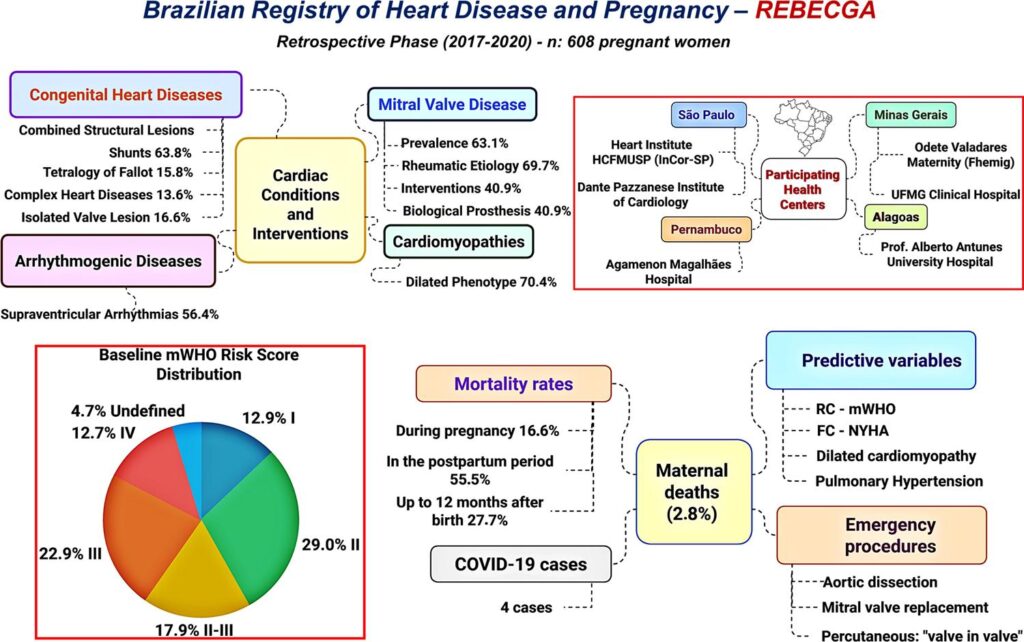Arq. Bras. Cardiol. 2025; 122(8): e20240807
REBECGA: Brazilian Registry of Heart Disease and Pregnancy. Multicenter Epidemiological Study of Heart Diseases in Pregnancy: Retrospective Cohort
This Original Article is referred by the Short Editorial "The REBECGA Registry: A Landmark in the Care of Pregnant Women with Heart Disease in Brazil".
Abstract
Background
Heart disease, which affects approximately 4% of pregnancies, is the leading non-obstetric cause of maternal death. It is estimated that 40% of these deaths could be prevented with a better understanding of pregnancy risks.
Objectives
To develop the Brazilian Registry of Heart Diseases in Pregnancy (REBECGA) to study the prevalence, complications, and maternal mortality associated with heart diseases during pregnancy and postpartum.
Methods
A multicenter retrospective study of pregnancy and postpartum follow up until 12 months after delivery in women with heart diseases, including analysis of predictive variables for maternal outcomes. A two-tailed significance level of 5% was adopted for statistical analysis.
Results
A total of 638 pregnant women were included, with the following diagnoses: valvular disease (37.8%), congenital heart diseases (35.7%), arrhythmias without structural heart damage (14.7%), cardiomyopathies (11.3%), and other heart diseases (6.4%). The main complications were heart failure (16.7%), arrhythmia (10.7%), and syncope (8.0%), with 18 maternal deaths (2.8%), 10 of which occurred during the postpartum period. Cesarean delivery was indicated in 62.9% of cases, with 25.7% preterm births and 3.2% fetal losses. Multivariate analysis identified WHO class IV risk classification (OR 3.51; 95% CI 1.75–7.04; p < 0.001); NYHA class III/IV (OR 2.27; 95% CI 1.12–4.60; p = 0.023), and pulmonary hypertension (OR 2.45; 95% CI 1.05–5.70; p = 0.037) as predictive variables for maternal complications and deaths.
Conclusions
REBECGA highlighted the prevalence of valvular disease, heart failure as the main complication, the postpartum period as a critical time for maternal deaths, and identified predictive risk variables for adverse pregnancy outcomes in women with heart disease.
167

